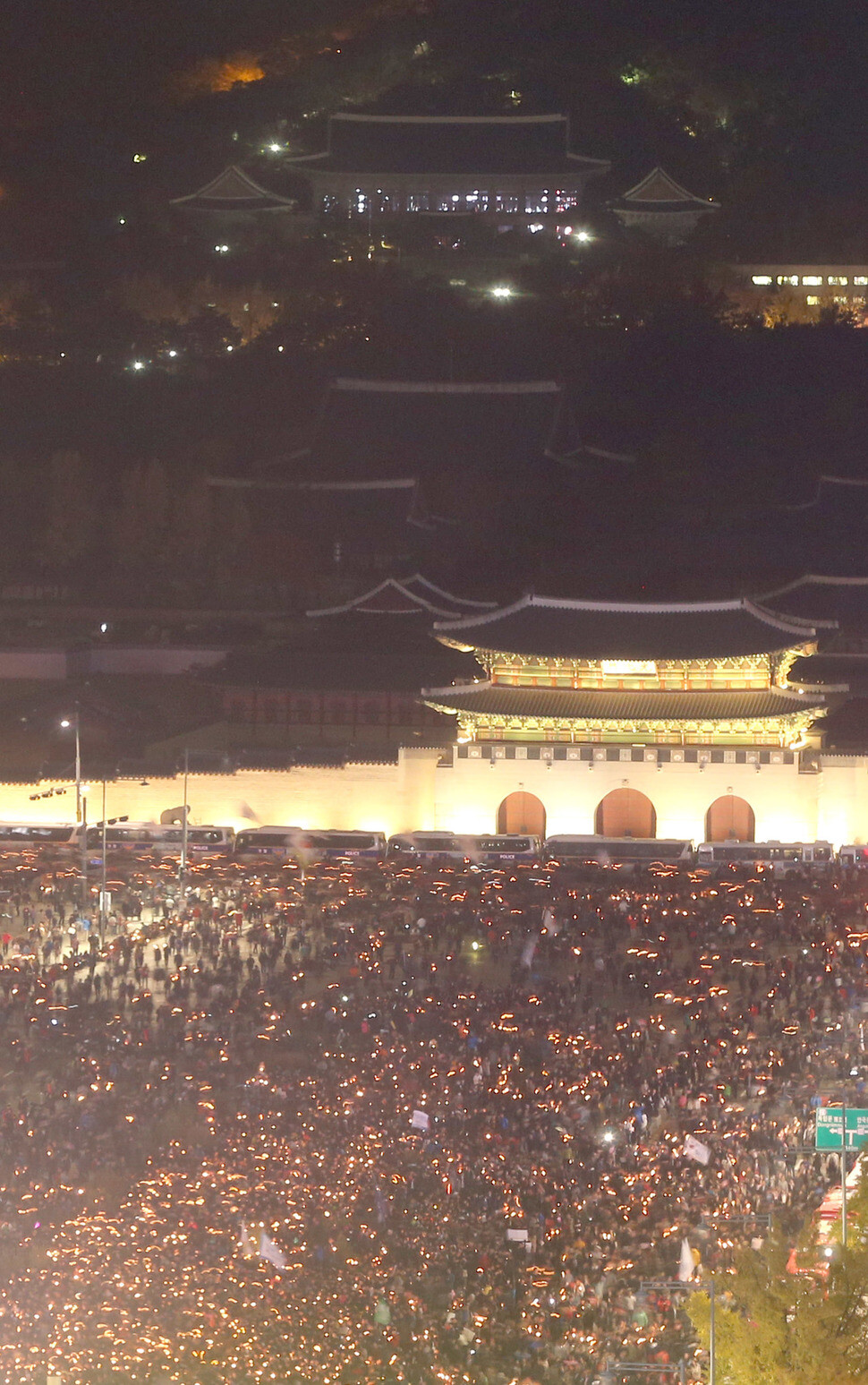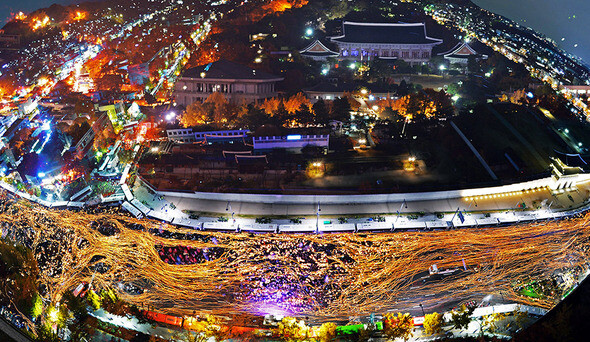hankyoreh
Links to other country sites 다른 나라 사이트 링크
[Editorial] Now is the time to ease foreign policy and security reliance on the US

The election of Donald Trump as US president constitutes a challenge to South Korea’s foreign policy and security. If Seoul manages to make the right response to Trump’s foreign policy approach of “America First,” this could even be a good opportunity for South Korea.
While the greatest adjustments to American foreign policy will occur regarding Europe, Russia and the Middle East, considerable change is also expected in East Asia. In some form or another, the policy of rebalancing to Asia and the Pacific backed by the Obama administration will be adjusted as well.
What is most certain is that Trump is very likely to reduce American involvement when the direct benefit to the US is not obvious. This coincides with his position that regional problems should be dealt with by the countries in those regions. This position has some degree of historical merit, since it corresponds to the movement toward a multipolar world.
South Korea has been too dependent on the US in its foreign policy and security. This dependence has become even worse under the current administration of President Park Geun-hye. In recent years, it is fair to say that Seoul has looked solely to the US and has blindly adhered to American policy.
One of the best examples of this has been South Korea‘s policy toward North Korea, which has consisted entirely of making shows of force and cranking up pressure and sanctions while cutting off all contact. The US has gotten its way in growing trilateral security cooperation with South Korea and Japan as well as on the issue of the comfort women for the imperial Japanese army. The same holds true for Seoul’s decision to allow the THAAD missile defense system to be deployed on the Korean Peninsula and its plan to purchase a huge amount of American weaponry. The delay of the transfer of wartime operational control of South Korean troops is also a consequence of this dependence upon the US.

The results have not been positive. The nuclear issue and inter-Korean relations are much worse than before, and South Korea’s relations with China are deteriorating. South Korea’s apparent incorporation into the US-Japan alliance as a junior partner is one example of the country‘s shrinking autonomy in the areas of foreign policy and security.
Admittedly, the US plays an important role in South Korean foreign policy and security, and South Korea needs a strong alliance with the US. That said, this alliance is a means to an end, and not the end itself. The US will not fix South Korea’s problems for it, nor does it place South Korea‘s interests above its own. That’s also what Trump has emphasized time and time again. Overdependence and blind faith will only hold South Korea back and further aggravate its foreign policy and security problems.
Now is the time for South Korea to readjust its relationship with the US after making a rational calculation of what South Korea is able to do, what it ought to do and what it can get from the US. The first issues to think about are resolving the nuclear issue and securing peace on the Korean Peninsula and in Northeast Asia. Trump has never offered a specific plan toward this end, and it’s unclear whether he even cares to do so. Reducing South Korea’s dependence upon the US and taking charge of the situation is no longer an option - it is a necessity.
Please direct questions or comments to [english@hani.co.kr]
Editorial・opinion
![[Guest essay] The real reason Korea’s new right wants to dub Rhee a founding father [Guest essay] The real reason Korea’s new right wants to dub Rhee a founding father](https://flexible.img.hani.co.kr/flexible/normal/500/300/imgdb/original/2024/0423/8317138574257878.jpg) [Guest essay] The real reason Korea’s new right wants to dub Rhee a founding father
[Guest essay] The real reason Korea’s new right wants to dub Rhee a founding father![[Column] ‘Choson’: Is it time we start referring to N. Korea in its own terms? [Column] ‘Choson’: Is it time we start referring to N. Korea in its own terms?](https://flexible.img.hani.co.kr/flexible/normal/500/300/imgdb/original/2024/0423/3617138579390322.jpg) [Column] ‘Choson’: Is it time we start referring to N. Korea in its own terms?
[Column] ‘Choson’: Is it time we start referring to N. Korea in its own terms?- [Editorial] Japan’s rewriting of history with Korea has gone too far
- [Column] The president’s questionable capacity for dialogue
- [Column] Are chaebol firms just pizza pies for families to divvy up as they please?
- [Column] Has Korea, too, crossed the Rubicon on China?
- [Correspondent’s column] In Japan’s alliance with US, echoes of its past alliances with UK
- [Editorial] Does Yoon think the Korean public is wrong?
- [Editorial] As it bolsters its alliance with US, Japan must be accountable for past
- [Guest essay] Amending the Constitution is Yoon’s key to leaving office in public’s good graces
Most viewed articles
- 1[Column] ‘Choson’: Is it time we start referring to N. Korea in its own terms?
- 2Why Korea shouldn’t welcome Japan’s newly beefed up defense cooperation with US
- 3Senior doctors cut hours, prepare to resign as government refuses to scrap medical reform plan
- 4[Guest essay] The real reason Korea’s new right wants to dub Rhee a founding father
- 5[Column] The clock is ticking for Korea’s first lady
- 6Opposition calls Yoon’s chief of staff appointment a ‘slap in the face’
- 7Terry Anderson, AP reporter who informed world of massacre in Gwangju, dies at 76
- 8New AI-based translation tools make their way into everyday life in Korea
- 9Samsung barricades office as unionized workers strike for better conditions
- 10Korean government’s compromise plan for medical reform swiftly rejected by doctors